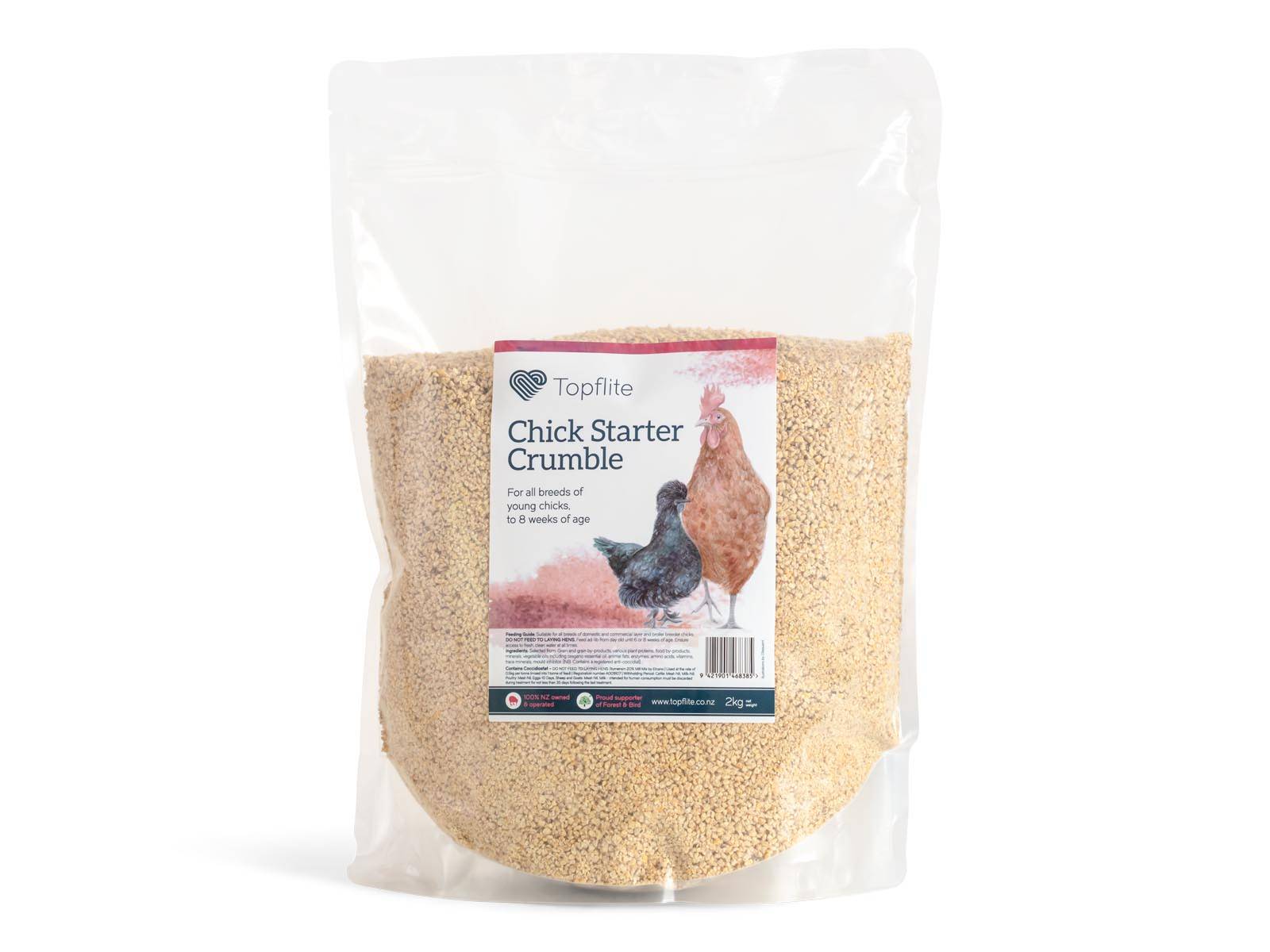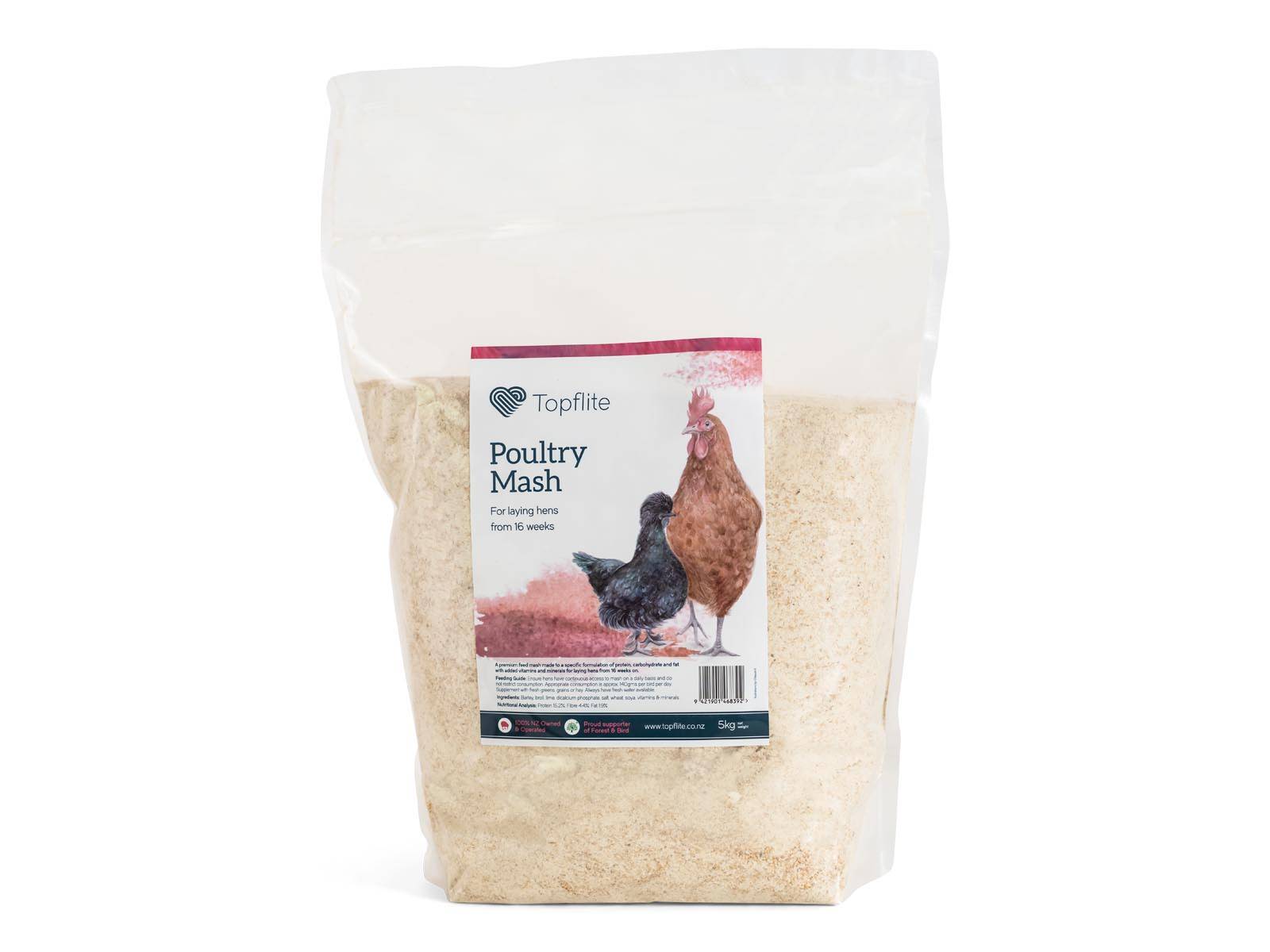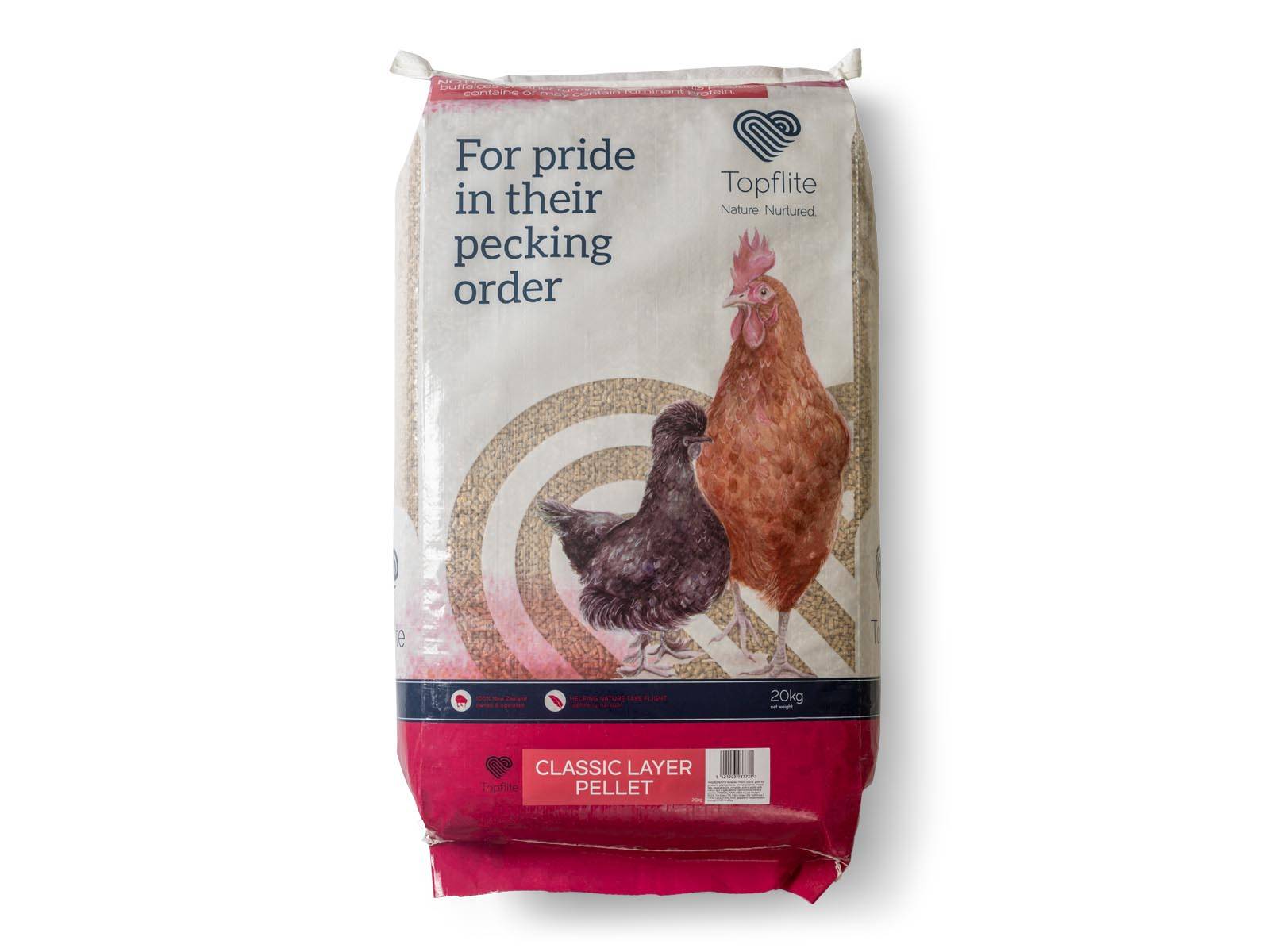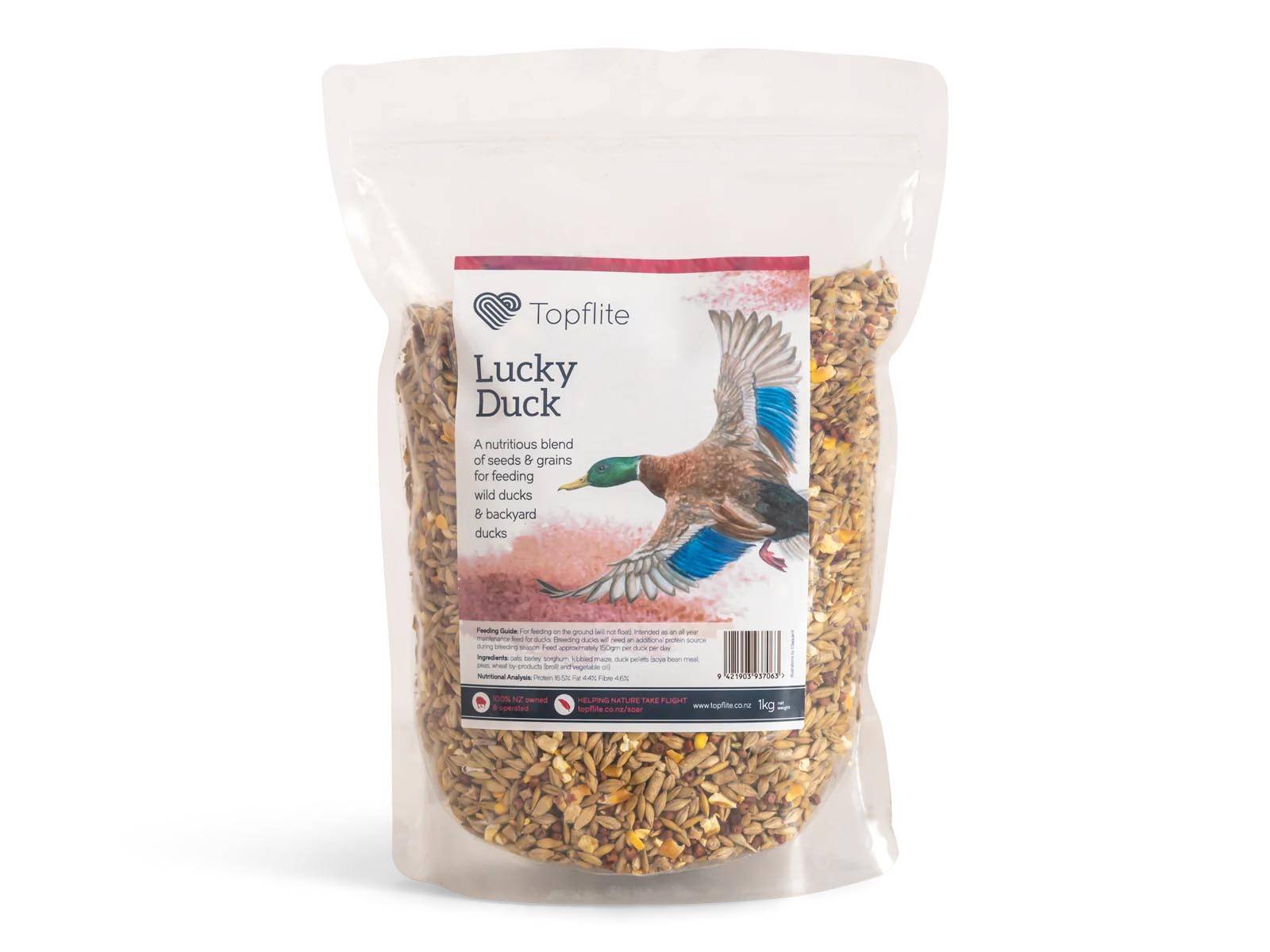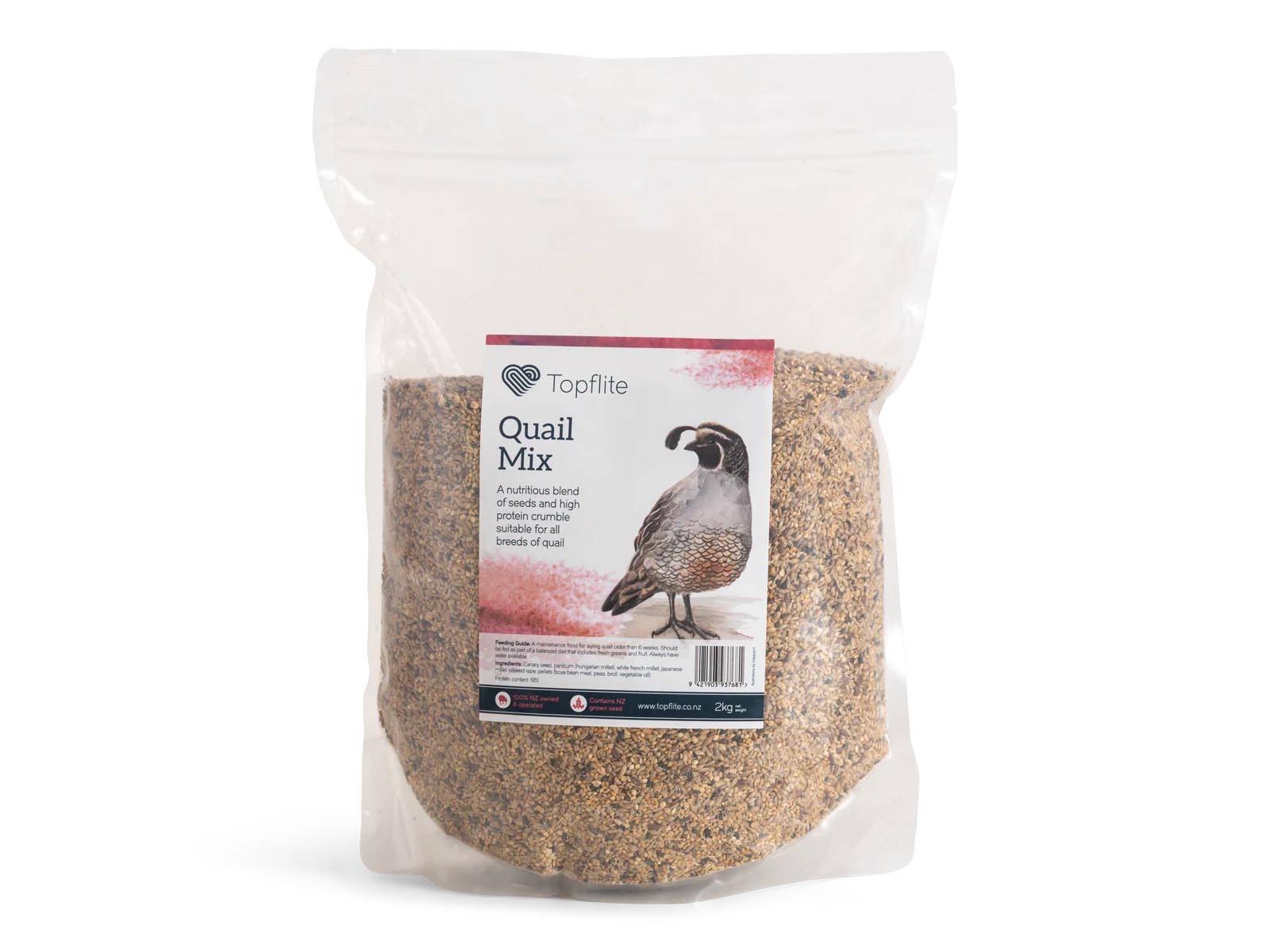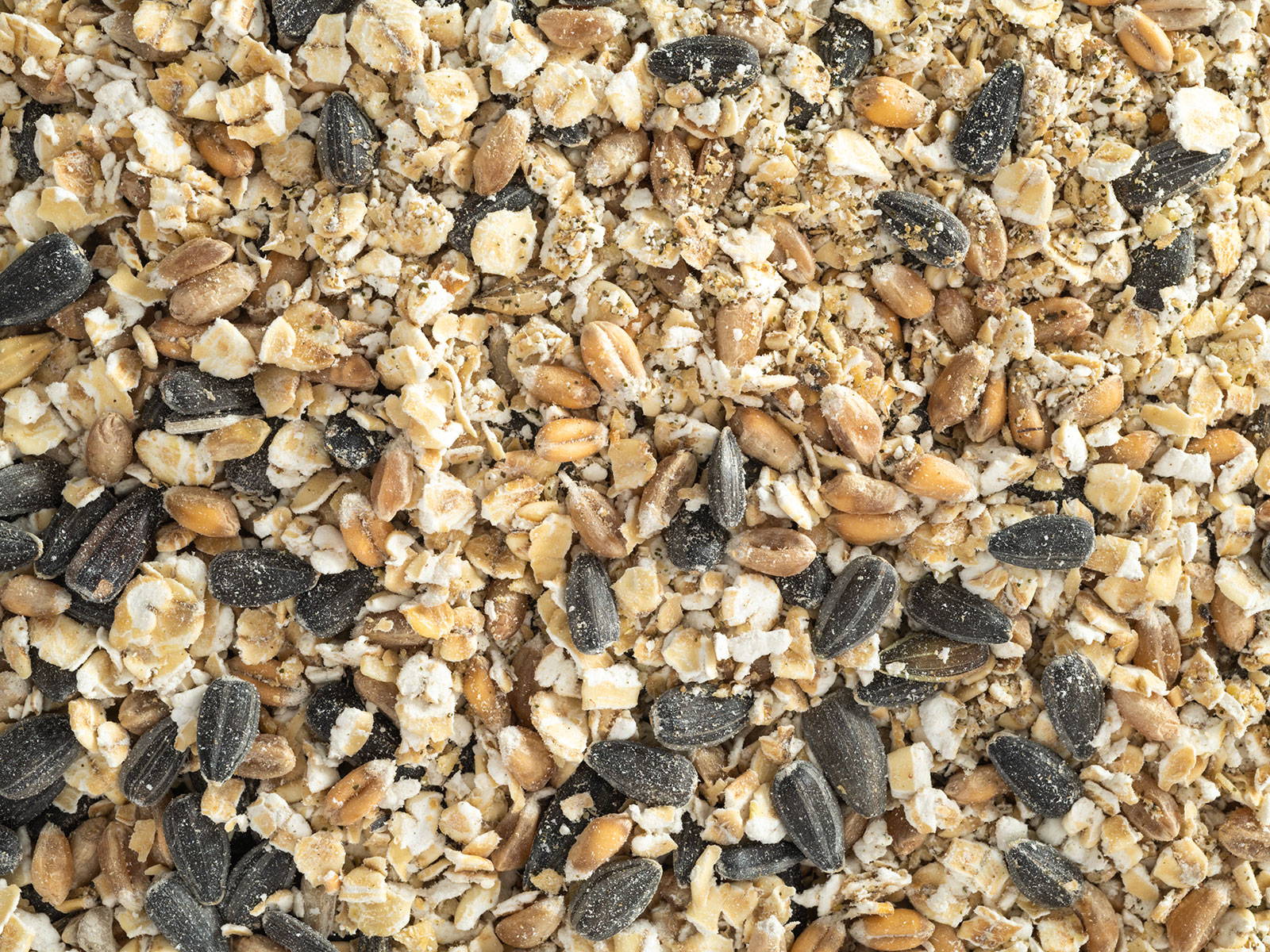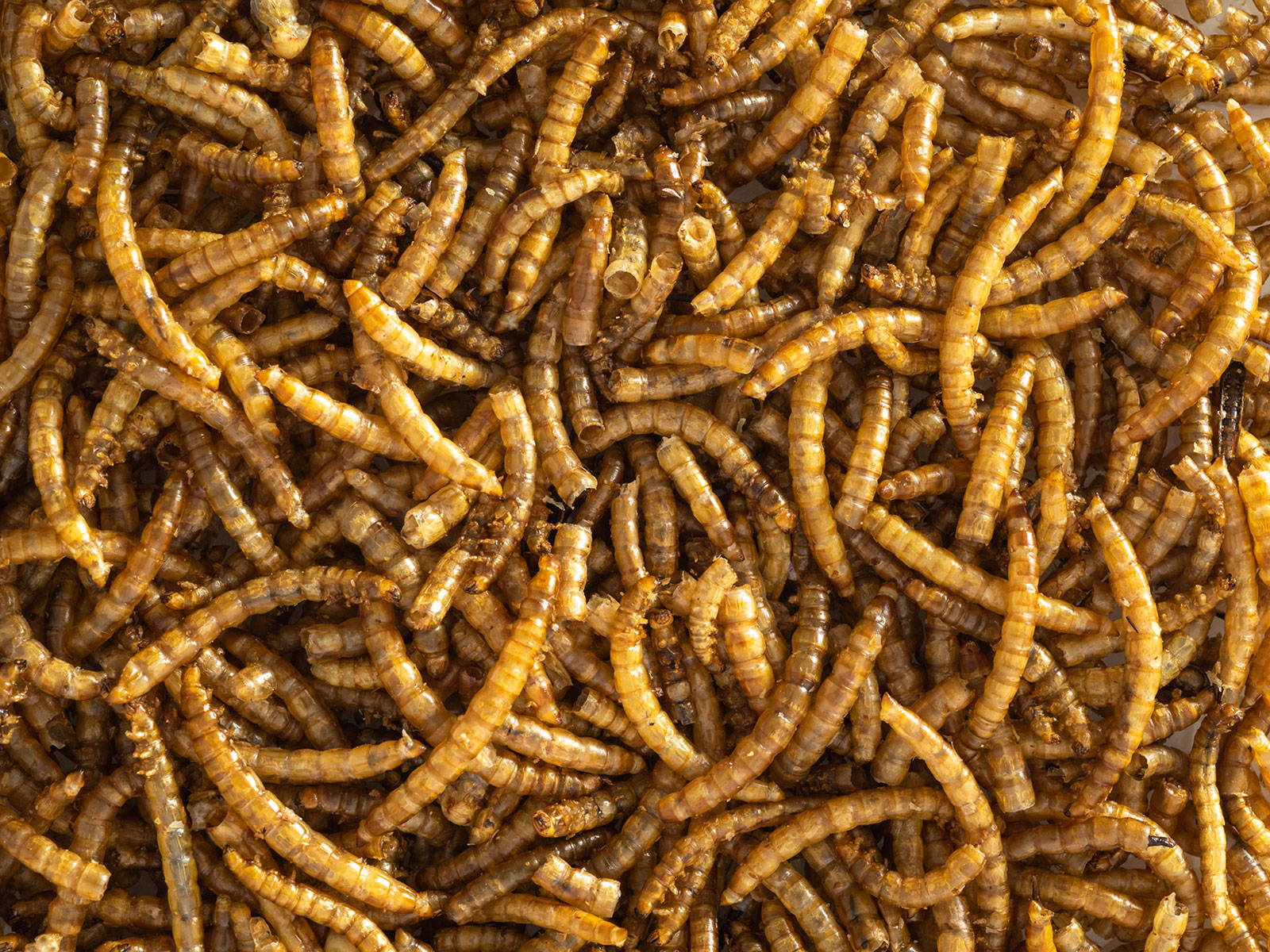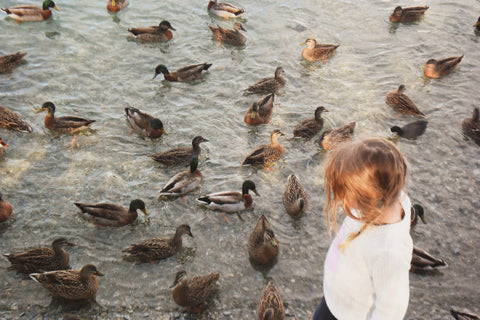How many is too many? This somewhat depends on their roaming space, whether your coop can comfortably cater to them, and whether you can afford to look after them correctly. However before you start planning for a new (or bigger) flock it’s important to check the regulations with your local council. There are different rules for how many you are allowed (and other key details) depending on where you live.
Essential tips for keeping
your flock in fine fettle
Quirky, sweet and irresistibly fun, chooks, ducks and quail make great companion animals –
with the added bonus of eggs! Whatever the feather, feeding the very best diet is the key to healthy, productive poultry.
Dietary requirements for poultry
Chicks
Protein: 18 - 20%
Calcium: Less than 1%
- From 0 - 8 weeks, chicks need a specialised crumb or mash that’s high in protein and easy to eat.
- Chick starter should contain an antimicrobial called coccidiostat that prevents growth of a gut protozoa parasite.
- Keep food fresh and available for growing chicks as they’ll consume increasing amounts as they grow.
- Always supply fresh, clean water in shallow dishes too.
- Never give layer feed to chicks as the calcium content is too high and can cause kidney damage.
Pullets
Protein: 16.5%
Calcium: 1% - 2.5%
- From 8 - 16 weeks, chicks are called pullets or growers. Their diet should contain less protein and more fibre.
- Gradually change from one feed to another by mixing the two over a few days. Wait until 16 weeks before introducing them to a layer diet.
- As with chooks of any age, keep fresh, clean water available always.
Adult Layers
Protein: 16 - 18%
Calcium: 3 - 5%
- From the age of 16 weeks, chooks need a balance of protein, fat and carbohydrates.
- Open access to a complete, nutritionally balanced feed will keep hens thriving and productive.
- Feed 120-130g of food each day. Extras, such as scraps or mealworms should be no more than 5-10g per day.
- Allow natural foraging of grass, weeds, worms, insects and fruit & vege scraps.
- More calcium is required for laying hens. Fast release calcium is included in layer pellets / mash feeds, but oyster shell grit provides a source of slow release calcium (it stays in the crop) so is an essential supplement.
Make sure your flock’s feed is up to Scratch (& Lay).
For adult layers from 16 weeks
• Premium mixture made in New Zealand
• Made to a specific formulation of protein, carbohydrate and fat, with added grit, vitamins and minerals for laying hens
• Free-flowing grain and high-protein pellet mix keeps hens in top laying condition
Ducks
- Omnivorous foragers by nature, ducks eat a diverse, protein-rich diet.
- Feed 150g of duck-specific feed each day and provide no more than 20g of forageable treats like dark leafy greens, herbs and mealworms.
- Ducks drink lots of water too – around 2L a day for adults so keep water dishes full and fresh.
- Laying ducks need more protein as well as extra calcium from supplementary grit.
Quail
- Quail naturally forage for their diet of seeds and insects. Provide adult quail around 50g of specifically formulated quail feed each day, plus plenty of forageable goodies like mealworms.
- As quail are very productive layers (250 - 300 eggs per season!) they need a high protein diet as well as extra calcium with their food. An easy way to provide this is sprinkling 1tsp of ground eggshells onto food.
See the complete range of poultry feed
For pampering your poultry
Frequently asked questions
How many chickens should I get?
What are the most important things to have in a chicken coop?
Your chooks will need dark nesting boxes, some solid perches for roosting and obviously somewhere to shelter from the elements. Chickens like to sleep close together so you don’t need to go over the top – something like 20cms of perch space will be enough. Nest boxes should be approximately 30 square cm.
Where can I find detailed information about different breeds of chickens in New Zealand?
We heartily recommend reading what the folks at thisNZlife have to say. Their best-selling book How to Care for Your Poultry is also very useful if you’re starting a flock.
How much should I feed each chicken?
For the average brown shaver (around 2kg) feed 120-130g of food each day. Extras, such as scraps or mealworms should be no more than 5-10g per day. For smaller heritage species, it's best to talk to a breeder.
Where do Topflite’s chicken feed ingredients come from?
Most of our ingredients are grown at our South Island farms, a lot of it harvested from the rich and fertile soils of our hometown, Ōamaru.
Does any of your chicken feed contain extra hormones?
No it does not.
Does Topflite chicken feed contain ruminant protein?
The only product that contains ruminant protein is our Classic Layer Pellets. The protein content of our other feeds is vegetable based.
What kind of treats do chickens like?
They go crazy for mealworms! Scatter a few on the ground to encourage natural foraging behaviour. The high protein content also helps to boost egg productivity.
How often should I feed chickens treats?
Treats should make up, at most, 5-10% of their daily diet.
How long does chicken feed last when stored?
If stored correctly in a dry environment our feed should last approximately 4-5 months. Always check your feed for mould or bugs before feeding however.
Why Lucky Duck creates happy quackers
A little bird tells us that the word is getting out and bread is no longer the feed of choice for ducks around New Zealand
How to get your chooks to lay more eggs
Feeling pretty puffed up about your busy hen house now everyone is scrambling for eggs?



